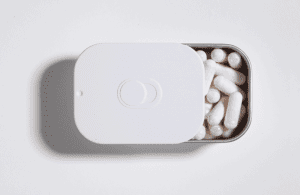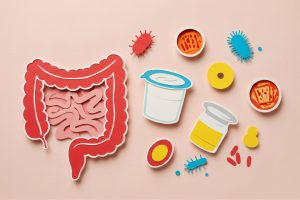Why fiber is essential for your health

Fiber is an essential but often underappreciated part of a healthy diet. This powerhouse nutrient offers countless benefits for your body. In this article, we take you on a journey into the world of fiber: what it is, what it does, and how it contributes to your overall well-being.
What is fiber?
Fiber is the indigestible part of plant-based foods. Unlike other nutrients such as fats, proteins, or carbohydrates, fiber is not broken down and absorbed by the body. Instead, it travels through the digestive system, absorbing water along the way and helping to remove waste products. In addition, certain fibers, known as prebiotic fibers, are fermented by “good gut bacteria,” which use them as food. This strengthens your gut flora and has a positive effect on your gut health, while also supporting the balance of your microbiome.
Different Types of Fiber
Fiber is divided into two main types: soluble and insoluble fiber.
- Insoluble fiber: This fiber is found in whole grain products, vegetables, and fruit. It mainly helps add bulk to stool and promotes regular bowel movements.
- Soluble fiber: You can find this fiber in vegetables, fruits, and legumes. Not only does it help with healthy bowel movements, but it also has a positive effect on the gut microbiome, which contributes to a healthy digestive system.
Ensure a Good Mix of Fibers
A varied fiber intake is important. It is therefore crucial to get fiber not only from vegetables, but also from other sources such as fruit, legumes, and whole grain products. By alternating between different types of fiber, you will consume a wider range of nutrients, which will benefit your intestinal health.
Health Benefits of Fiber
The health benefits of fiber are diverse and offer support on several fronts:
- Digestive Health: Fiber promotes healthy bowel movements and can help keep digestion running smoothly.
- Blood Sugar Control: Fiber can help regulate blood sugar levels by slowing down the absorption of sugar.
- Cholesterol regulation: Soluble fiber contributes to maintaining healthy cholesterol levels.
- Weight management: Fiber helps create a feeling of fullness, which can contribute to weight management.
Source: Vezels. Voedingscentrum. (n.d.) Retrieved October 22, 2025, from https://www.voedingscentrum.nl/encyclopedie/vezels.aspx#blokwaarom-zijn-vezels-gezond
How Much Fiber Do You Need?
Did you know that 75% of the population doesn’t eat enough fiber? To find out how much fiber you’re getting, you can track your diet for a few days in a food tracker app. This will help you understand your current fiber intake and whether you can add a little extra to your diet. The guideline is 30-40 grams of fiber per day for a healthy diet!

 UK
UK NL
NL IT
IT FR
FR ES
ES DE
DE AU
AU HR
HR
